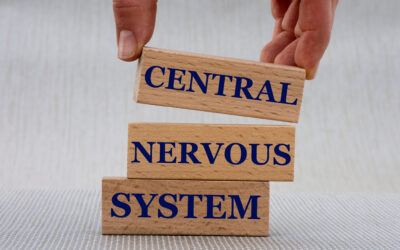Non-clinical testing is a high-stakes process where efficiency and accuracy are paramount. Mistakes can cost time and money and, more importantly, derail drug development.
Effective and thorough communication throughout the non-clinical testing process can ensure the best chance of success for both large and small drug development companies. Project leaders with awareness, flexibility, and good communication skills cannot be undervalued in the drug development process.
Address issues as they arise
The most successful drug development teams can recognize an issue early and communicate quickly how to address it. This allows them to make the adjustments necessary to get the project back on track.
This can only happen reliably if everyone has the confidence to contribute and open communication is enabled across the team. The project lead does not have to be at the forefront of that process but should act as a conduit to guide it, ensuring the entire team is always involved.
The project lead has to delegate responsibilities to those assigned to each part of the testing process and then maintain parameters of responsibility, clear lines of communication, and definitive and measurable goals. Assigning roles at the beginning of the non-clinical testing process ensures that team members know and understand their roles and helps clarify ownership.
This structure enables constructive and seamless partnerships with outside partners, who can perform their duties more proficiently with precise and established logistics and project requirements.
Maintain awareness
Great communication is highly valued at the start of a project, but it can easily wane if team members lose sight of their roles and responsibilities. If the team takes its eye off the task at hand, the project can quickly tailspin. To combat this, the leader in each area of non-clinical testing must keep a constant vigilance on the team’s activity and encourage them to communicate when any problems or ideas arise.
Team leaders also need to pay close attention to the morale and happiness of all group members. Issues can be missed if someone feels stifled or lacks the confidence to speak up. If a team member does seem unhappy, it’s always best for the team leader to speak to them privately to understand the problem rather than bring it up in front of the whole group. Recognition, communication, and flexibility are crucial to ensuring the entire team moves forward as one unit, working towards the same objectives and embracing their roles and responsibilities.
Again, constant communication is critical to ensuring that minor problems don’t escalate into issues derailing non-clinical studies. It’s best to act early rather than let problems grow and cause more damage in the long term.
Stay confident in the face of unexpected data
Anticipate non-clinicaltesting problems at the beginning of the project. If unexpected issues arise, it’s important to avoid panic. For example, if, during non-clinical testing, researchers encounter adverse toxicology findings in a compound, it’s easy to interpret this as a failure. However, it may not be a failure because safety analysis can provide an opportunity to characterize the direct and indirect effects of the drug which will inform the clinical program.
Rather than panicking when something like this occurs, a team leader should start by asking questions to their team and testing partners. Unexpected hurdles shouldn’t completely halt the study’s momentum, and with calm, the team can continue moving toward the objective.
The inquiries and reviews that follow incidents like this can lead to a drug development company gaining unexpected insight. That knowledge can then shape the characteristics of non-clinical assessments and the First-in-Human (FIH) clinical trials. Working through this data can narrow the focus of safety testing when trying to understand complex molecules.
A final word
Developers who encourage effective communication during their non-clinical studies will save time and money and build stronger relationships with safety assessment service providers. They will also ensure the data generated from the studies will be as accurate as possible, and developers can rely on that precision as they enter the following stages of the development process.
Everybody wants to bring vital drugs to market in the fastest, safest way possible, so ensuring excellent communication before a team embarks on non-clinical studies makes sense. By building an environment where teams are confident enough to communicate properly, developers encourage productive discussions and seamless momentum toward the ultimate goal—putting much-needed treatment into the hands of patients.
As a global company with operations across Asia, Europe, and North America, WuXi AppTec provides a broad portfolio of R&D and manufacturing services that enable the global pharmaceutical and life sciences industry to advance discoveries and deliver groundbreaking treatments to patients. Through its unique business models, WuXi AppTec’s integrated, end-to-end services include chemistry drug CRDMO (Contract Research, Development and Manufacturing Organization), biology discovery, preclinical testing and clinical research services, helping customers improve the productivity of advancing healthcare products through cost-effective and efficient solutions. WuXi AppTec received an AA ESG rating from MSCI for the fourth consecutive year in 2024 and its open-access platform is enabling around 6,000 customers from over 30 countries to improve the health of those in need – and to realize the vision that “every drug can be made and every disease can be treated.”


